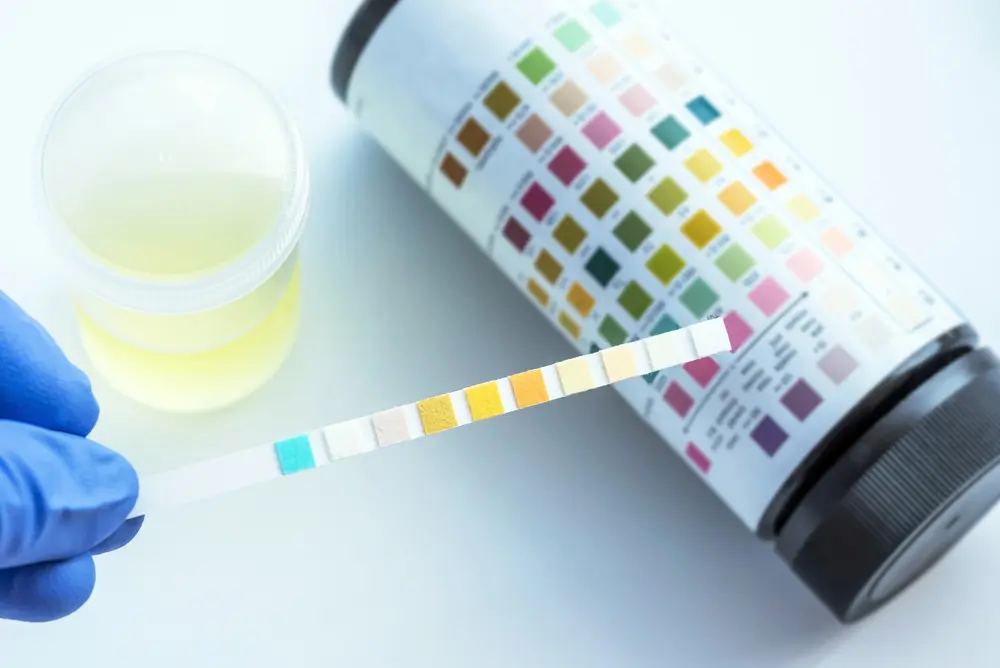What are the symptoms of a UTI?
What is a UTI?
A burning sensation when you pee? Peeing more often than usual? Blood in the urine or smelly urine? Tummy or back pain and fever? These are some of the symptoms of a UTI or Urinary Tract Infection. A UTI occurs when germs (usually bacteria) infect the urinary tract.
The urinary tract includes the kidneys, ureters, bladder and urethra. The symptoms you get depend on which part of the urinary tract is affected- if the kidneys are involved it can make a person feel very unwell. Men can get UTIs too, though much less often than women. UTIs in babies and children can have different symptoms- see our separate article on UTI in kids. Symptoms of a UTI vary from person to person, but here are the most common issues:
Dysuria
This means it burns or stings in the urethra (the tube that allows urine to flow out of the bladder) when you pee. In many cases dysuria is mild, but it can get quite severe.
Frequency
This means you pee more often than usual. Sometimes it’s so bad that minutes after going to the toilet you feel you need to go again! It’s commonly associated with dysuria (see above). Passing more urine than usual can also be associated with diabetes, and other medical conditions- if you’re not certain it feels like a UTI (for example, if you do not have the other typical signs of a UTI), it is best to see a doctor for examination.
A sense of incomplete emptying
You may feel your bladder still contains urine and you need to pee, even though you’ve just been to the toilet.
Haematuria
This means blood in your urine. Sometimes it’s obvious there is blood in the urine- the urine may have a pink or reddish colour. Occasionally women may even pass a clot in their urine. However, when a person has symptoms of a UTI, the urine may appear normal, but when the doctor checks it with a dipstick, there is blood in it (this is known as microscopic haematuria)
Incontinence
Some people may accidentally pass urine when they have a UTI- though this is more common in the elderly or in children.
Fever
As a UTI gets worse, a person gets more unwell- with fevers, chills and sweats. This is often a sign that the infection is spreading to the kidneys and/or into the blood stream. Pain in the kidneys and vomiting may also develop. It is very important to see a doctor as soon as possible if you develop a fever with other symptoms of a UTI.
Pain
Aside from burning or discomfort when passing urine, a person with a UTI may get an ache in their bladder (a pain very low down in the tummy). If the infection involves the kidneys (pyelonephritis), there may be a pain or ache in the kidney area. The kidneys are located in the back, just behind the lower ribs. Pain in the kidneys (also known as “renal angle pain”) should be assessed urgently by a doctor as antibiotics may be needed, sometimes via a drip.
If you have symptoms of a UTI you should see a doctor as soon as possible. If you have a UTI, an antibiotic is usually needed to treat it.
If you have symptoms of a UTI you should see a doctor as soon as possible. If you have a UTI, an antibiotic is needed as they do not get better by themselves.
What else could it be?
Depending on your symptoms, your doctor may ask you questions and do tests to rule out other conditions such as sexually transmitted infections, thrush and kidney stones. Peeing too often can also be a sign of diabetes, but there would generally be no burning or pain in this case.
What tests are needed?
If you have symptoms of a UTI, your doctor may perform a dipstick test on your urine. The urine sample may also be sent to the lab, to see if any bacteria are present. Depending on your symptoms, your doctor may also recommend an STI test. In some cases, a scan of the urinary tract may be advised.
What’s the treatment for a UTI?
Treatment is usually with oral antibiotics, but for more severe infections hospital admission and an antibiotic drip may be needed.
If you are worried about symptoms of a UTI, see your doctor.
Getting a Mental Health Care Plan in Australia: Your Guide
Getting a Mental Health Care Plan in Australia: Your Guide Mental health matters—and if you’re feeling overwhelmed, anxious, or down, a mental health care plan can help. But what is it, and how do [...]
UTI Symptoms and Treatment: What You Need to Know
UTI Symptoms and Treatment: What You Need to Know Urinary Tract Infections (UTIs) are common, uncomfortable, and often disruptive. But what exactly are the signs to watch for, and how can you get relief [...]
Free Mental Health Care Plan Online | Bulk-Billed by Qoctor
Free Mental Health Care Plan Online | Bulk-Billed by Qoctor Discover how to get a free, bulk-billed Mental Health Care Plan (MHCP) in Australia through Qoctor's telehealth service. Accessing [...]






